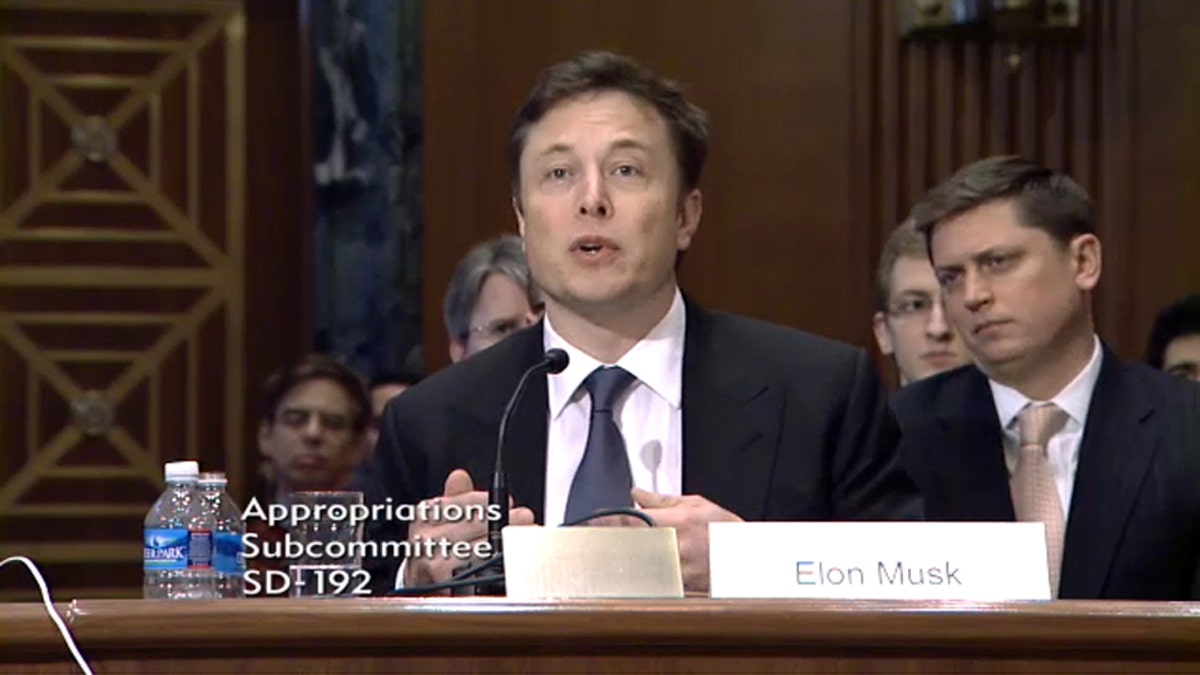
SpaceX CEO Elon Musk testified before the U.S. Senate Appropriations Subcommittee on Defense committee on March 5, 2014. (FoxNews.com)
It wasn't rockets that flared at the U.S. Senate today.
Tempers rose and egos battled it out on Capitol Hill Wednesday morning as SpaceX CEO Elon Musk pitched his wares: enormous rockets capable of carrying high-tech cargo into space. At stake was tens of billions in business launching satellites for the U.S. government.
"I think the logical thing to do is to have a fixed-price competition for the basic vehicle," Musk said in testimony before the Appropriations Subcommittee on Defense, claiming SpaceX could save taxpayers an estimated $11.6 billion in rocket launch costs. If the Air Force has a unique national security need, "just that incremental piece should be cost plus."
'The Atlas V cannot assure access to space when it relies on President Putin's permission to enter space.'
The projected price of the military's satellite-launch program is estimated at $70 billion through 2030, according to a Government Accountability Office report released yesterday.
And since 2006, the United Launch Alliance (ULA) has had a virtual monopoly on the business. ULA, a joint venture of Boeing and Lockheed Martin, carries satellites to space aboard its Atlas rockets. Competition for price could drive the cost down for the government, saving taxpayers money.
The ULA's Atlas rockets rely heavily on a Russian main engine to bring their rockets to launch, Musk noted. Amid the crisis in Crimea, there is growing concern over the U.S.'s reliance on Russia for human transport to and from the International Space Station since retiring the American space shuttle program.
"The Atlas V cannot assure access to space when it relies on President Putin's permission to enter space," said Musk who pointed out that SpaceX rockets are "truly made in America."
Michael Gass, president of ULA, countered that while the company is "ready and willing and able to compete on any field," the introduction of competition into a niche market may not lower the government and taxpayer's costs.
Gass said his company has a two-year supply of the Russian engines and have demonstrated their ability to build more should their relationship with the Russian company deteriorate.
"Despite the continuing promise of lower costs since 2006, the fact is that the current situation of sole-source providers has become unsustainable," Musk said in testimony before the Appropriations Subcommittee on Defense. "[SpaceX is] ready to compete for the national security market." And there are other ways to reduce expenses, experts testified.
"Competition is one way to put pressure to lower prices," testified Cristina Chaplain, director of acquisition and sourcing management at the Government Accountability Office. "The other avenue is to take action within the program you already have."
